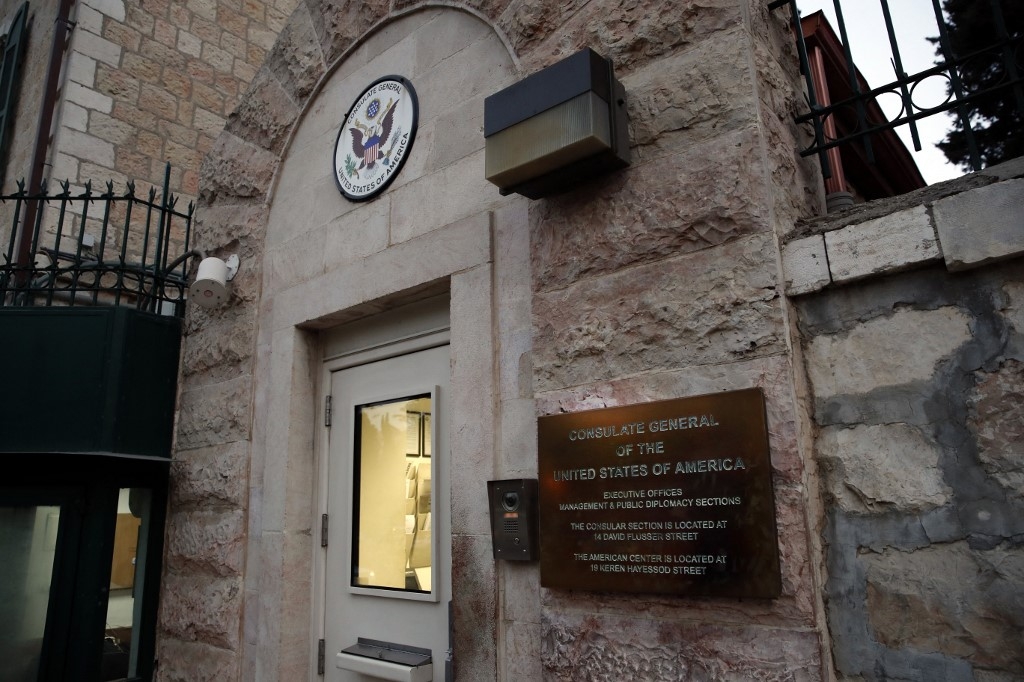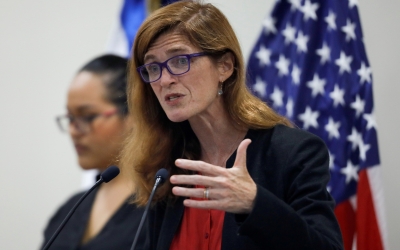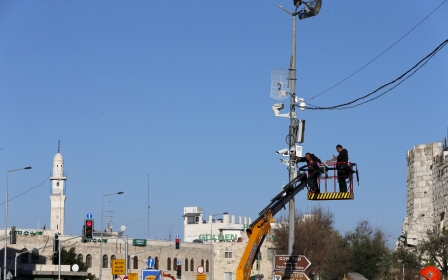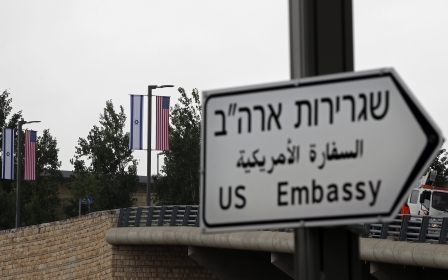Former Jerusalem mayor lobbies Biden against reopening consulate for Palestinians

An Israeli former mayor of Jerusalem is calling on the administration of US President Joe Biden to abandon plans to reopen the US consulate in occupied East Jerusalem that would serve Palestinians.
Nir Barkat, now a Knesset member with the far-right Likud party, is visiting Washington this week and meeting with US lawmakers from both main parties to promote a bill he introduced in Israel that would ban countries from opening new diplomatic missions for Palestinians in Jerusalem.
Speaking to The Hill, Barkat warned that attempting to re-open the US consulate in Jerusalem, which was shuttered by former President Donald Trump, would be a mistake.
'There will be all sorts of European consulates in Jerusalem, and it will turn into the consular capital for the Palestinians'
- Nir Barkat, Israeli Knesset member
"It's not about the American administration, it's about the fact that we do not want Palestinian consulates to reside in Jerusalem," said Barkat, who served as mayor of the city from 2008 to 2018.
Former President Trump's decision to move the US embassy from Tel Aviv to Jerusalem broke decades of an international status quo. Since Jerusalem is considered a contested city, with East Jerusalem considered by international law to be occupied by Israel, the vast majority of countries have kept their embassies in Tel Aviv.
New MEE newsletter: Jerusalem Dispatch
Sign up to get the latest insights and analysis on Israel-Palestine, alongside Turkey Unpacked and other MEE newsletters
While Israeli ambitions see an undivided Jerusalem as the capital of Israel, Palestinians have been adamant that occupied East Jerusalem is set to be the capital of their own future state.
Last week, Barkat told Israel's Channel 12 news that consulates located in East Jerusalem to serve the local Palestinian population were a direct threat to Israel's future rule over an undivided Jerusalem.
"We are talking about the unification of Jerusalem," Barkat said. "Before we know it, there will be all sorts of European consulates in Jerusalem, and it will turn into the consular capital for the Palestinians."
Drumming up support in Washington
President Biden, who was against the US embassy move to Jerusalem, said last year that he planned to re-open the US consulate in occupied East Jerusalem for Palestinians. Meanwhile, Secretary of State Antony Blinken made the official announcement in May.
Barkat's newly introduced legislation is a direct challenge to those plans.
"It's common in the world that if a country sees there’s a legislation [in] process, we don’t force ourselves before it’s over," he told The Hill, implying that the Biden administration should stall its plans until it was clear which direction the legislation is headed.
Barkat is set to attend at least eight meetings with Republicans and Democrats in Washington as he looks to drum up support, the newspaper reported.
Since the Likud party, headed by former Israeli Prime Minister Benjamin Netanyahu, is now the opposition in Israel’s parliament, it is unclear how much backing Barkat's initiative can hope to garner. So far, it has 38 co-sponsors in Israel's 120-seat Knesset.
Still, Barkat has called on the US administration to at least hold off on its plans.
"My expectation, which is a common thing, [is] that now the United States understands that there's a legislation process of an issue that 75 percent of the Israeli public supports. You don’t rush to decide prior to that process is finalised," he said, citing a small poll he commissioned.
The poll, seen by The Hill, found approximately 72 percent of Israeli voters opposed the US opening a consulate to the Palestinians in Jerusalem, while 23.4 percent supported the move and 4.5 percent were undecided.
The survey of more than 500 people was conducted by the polling firm Direct Polls in mid-July.
Middle East Eye delivers independent and unrivalled coverage and analysis of the Middle East, North Africa and beyond. To learn more about republishing this content and the associated fees, please fill out this form. More about MEE can be found here.





